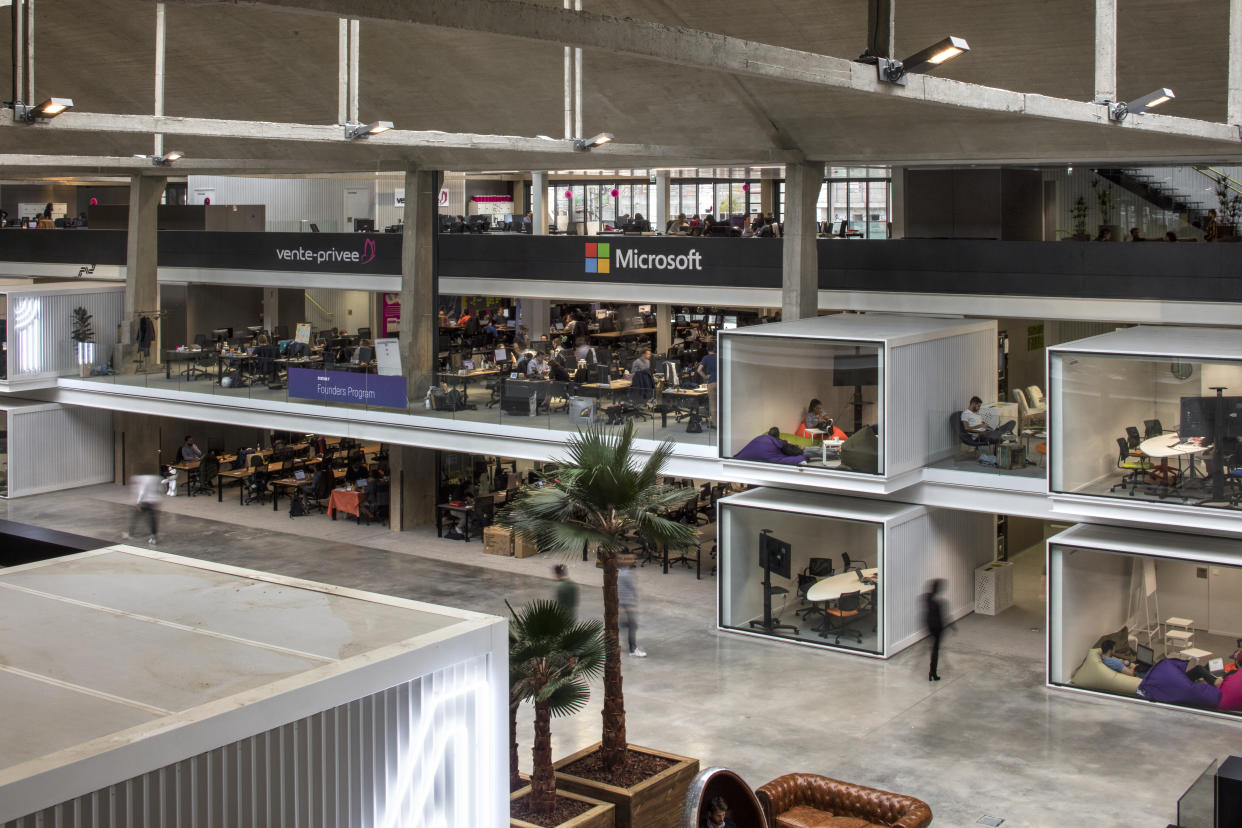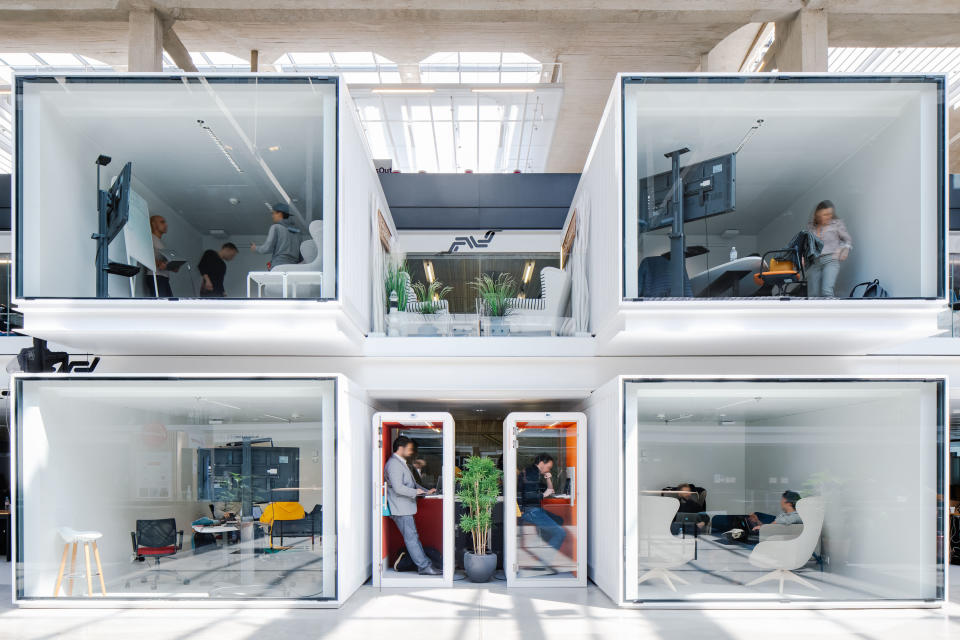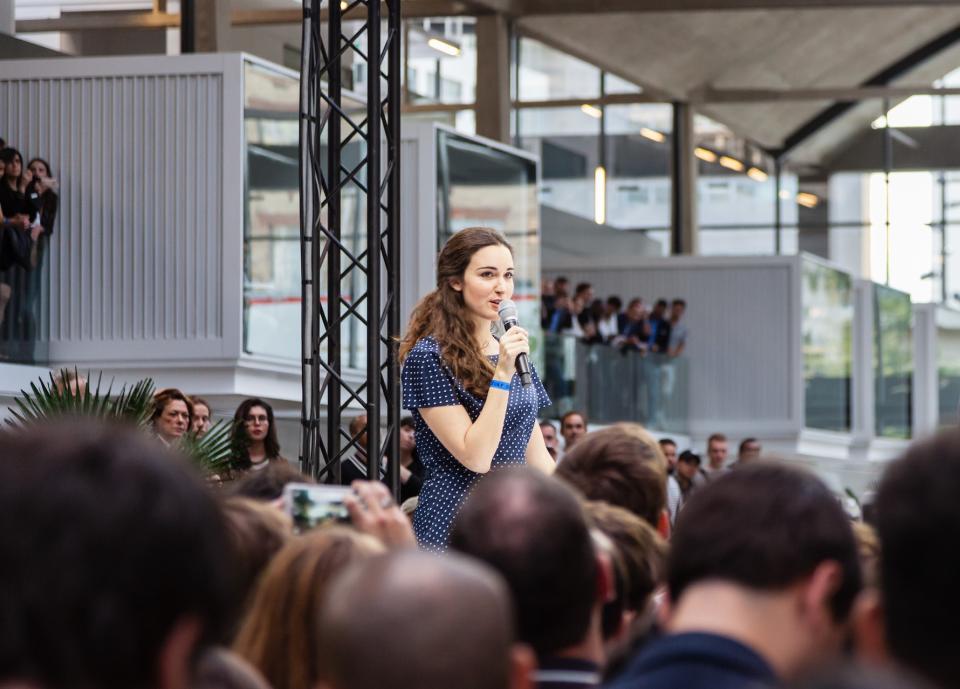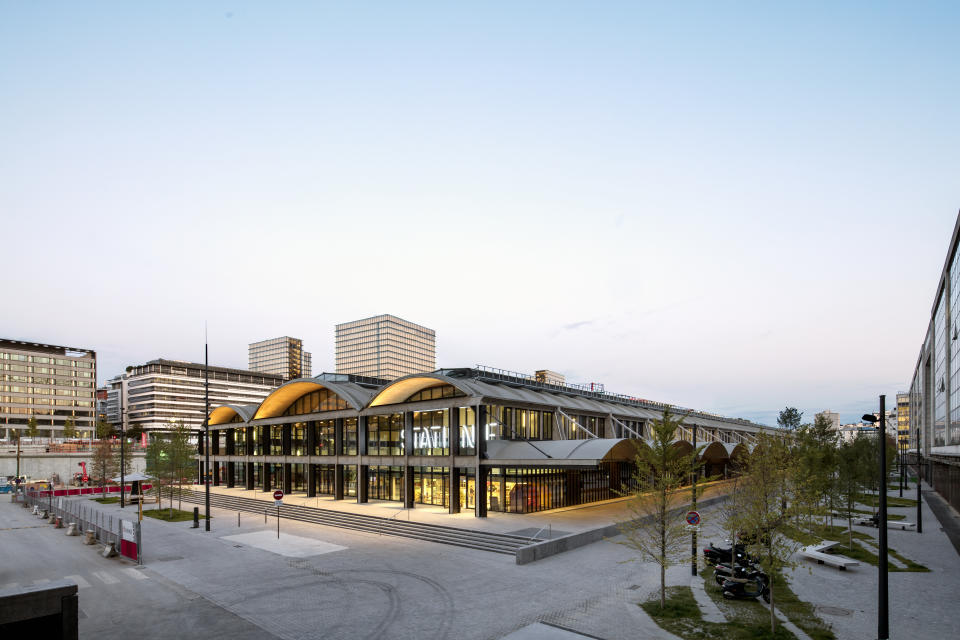How Station F is spearheading France’s tech ambitions

Berlin is often lauded as the most attractive city in northern Europe for young tech founders, but wealthy Paris has been steadily gaining on its grungy neighbour in the startup wars.
Station F in Paris is the engine of the country’s tech push. Housed in the 34,000 square meter Halle Freyssinet in Paris, the hub was the brainchild of French entrepreneur and telecoms billionaire Xavier Niel, who is still its sole owner and investor.
Launched in 2017, it is home to over 1,000 startups — a third of them from abroad — and is now the biggest startup hub in the world. Station F director Roxanne Varza describes it as a “university for startups,” and, like a university, it also offers startup founders the chance to rent its shared apartments and dodge punishing Parisian rent prices.
French president Emmanuel Macron’s “great pro-business vibe” has been a boon for the the country’s tech sector, Varza said, but notes that “essentially, Macron, Brexit, Trump, the launch of Station F, new French tech initiatives, all of this has come together at the same time.”
She told Yahoo Finance UK that Brexit is having an impact on startups applying to Station F — but not because founders are actually leaving the UK, rather because some who would have moved to the UK are now trying to come to France instead.
Macron’s tech mania

While the embattled Macron is deeply unpopular over his attempted labour market and pension reforms, France’s tech sector has welcomed his all-out push to turn the country into a “unicorn nation.” He has said he wants the country to hit 25 tech startups with $1bn (£759m) valuations by 2025.
To achieve this, he launched his “Choose France” tech-business initiative in 2018, and last year introduced a new, more flexible tech visa to make it less complicated for non-EU citizens to set up shop in France, and empower employers to find more global talent.
The government’s French Tech Mission, based inside Station F, has launched a swathe of programs, including a €400m (£339m, $446m) fund to co-invest in Deeptech startups.
“A lot of people feel like Macron came and then the next day everything changed, but actually, it was happening prior to that,” Varza told Yahoo Finance UK. The former head of Microsoft Ventures and TechCrunch France has lived in the country since 2009.

Varza says that France’s reputation as a slow-moving country with draconian labour laws, strict 35-hour weeks, endless strikes, and administrative headaches is no longer really accurate.
“A lot of this stuff either isn't necessarily applied to startups, or actually it's not as big of a barrier as you read about in the press,” Varza said. “People are staying with this idea of France of five years ago, and they come and see what's happening now and go ‘actually, this is not what we expected.’”
France overtakes Germany
International investors keep telling Varza that they believe momentum in the French tech scene is still building. “A lot of them actually compare… some of the stuff happening in France to what they've seen in Silicon Valley in the past, including sometimes overvalued companies, very expensive, and very competitive.”
France overtook Germany in terms of startup investment in the first half of 2019. EY data showed that French startups raised €2.79bn in the first six months, a more than 40% increase from the year before, beating Germany’s €2.47bn.
While there is no shortage of investor money sloshing around, Series B and late-stage funding is more of an issue, and one that affects startups Europe-wide and forces them to seek US or Asian investors to keep growing their companies. That is also something Macron is planning to try and remedy, with a new €5bn later-stage investment fund backed by institutional investors and private companies.
Smashing elitism

When he established Station F, owner Xavier Niel wanted to break down France’s elitist barriers that ensured students from the top schools were always the ones who get access to the best networks, job opportunities, and funding to set up their companies. To that end, Station F launched a program called Fighters, for founders from underprivileged backgrounds.
Fighters is their smallest program, admitting just 10 to 15 startups a year. “We do that on purpose because they really need a lot more in terms of resources and attention,” Varza said. “We meet with them much more frequently, we look at reinforcing the number of connections that we can help them make, because they're often people who don't come with all of the same networks as others.”
She said one of the founders in the Fighters program is a former prisoner, who was previously a car thief and now does anti-theft devices for cars. There is also someone who was formerly homeless, who was accepted with his startup idea for an app to have people to wait in line for you. “To get visas, passports, and legal documents renewed in Paris, people can wait for days, they can start queuing at like five in the morning,” Varza said.
Station F, managed by a core team of 35 people, is not government-funded or non-profit, but neither has it been set up to make tons of money: “We are meant to just be break-even, and I think that's probably what we're going to stay at,” Varza said.

